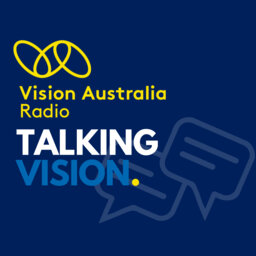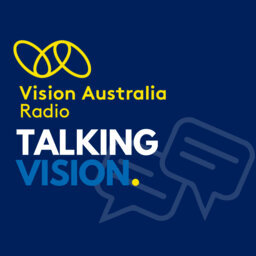Talking Vision Edition 590 Week of 6th of September 2021
Sam catches up with Vision Australia’s Belinda Wilson about an upcoming podcast on Vision Australia Radio she’s hosting called The Career Path. Belinda recently launched a survey to gain perspectives from the blind and low vision community on employment, and what topics would be useful to hear about.
Then later in the show, Stephen Jolley sits down with paratriathlete Katie Kelly in the second of our Paralympics interviews. Katie has low vision as a result of a degenerative condition, and she speaks about her experiences after taking part in the triathlon at her second Paralympics in Tokyo.
In 1 playlist(s)
Talking Vision by Vision Australia Radio
Vision Australia Radiothon is on now. Donate via www.varadio.org and make a tax deductible donation …Social links
Follow podcast
Recent clips

Talking Vision 820 Week Beginning 23rd of February 2026
27:55

Talking Vision 819 Week Beginning 16th of February 2026
28:59

Talking Vision 818 Week Beginning 9th of February 2026
28:10
 Talking Vision by Vision Australia Radio
Talking Vision by Vision Australia Radio